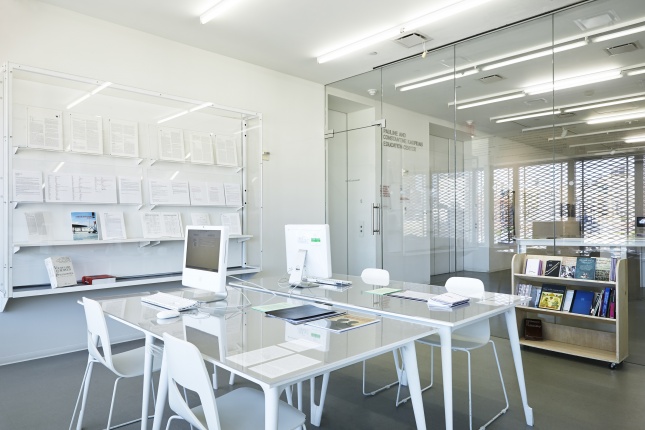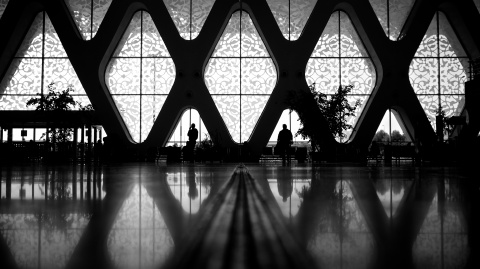Every translation sets into play distinct vocabularies and systems of meaning—linguistic and otherwise—and it is in these encounters that priorities and positions are negotiated. While fidelity to an original work or idea is paramount in some theories of translation, the Center questions what exactly constitutes a likeness. It also complicates the idea that a translator should aim to retain what is foreign about a work, which in turn helps articulate the distinctions between contexts that are national, political, cultural, or otherwise. Inevitable incongruities are important to the Center’s activities: They provide the opportunity for devoted—though, in some cases, not so faithful—rewrites. A work may be radically reoriented from its original readership and stakes through translation, thereby asking the original and the translation to account for each other in new ways. At its base, the Center is dedicated to opening up the process of translation, making visible conversations that are a routine—but often hidden—part of the translation process.
A modest experiment rather than an enduring infrastructure, the Center’s commitment during its short-term existence is to the facilitation and distribution of translations of select texts on visual culture. An essay by Lebanese artist and writer Jalal Toufic will be translated from English into Arabic and French, and an essay by contemporary Moroccan philosopher Abdessalam Benabdelali will be translated twice from Arabic into English. The first iteration will be a “standard” translation and the second, a more radical linguistic transformation drawing on experimental processing techniques by a writer-translator with no Arabic language skills. Acting as a temporary catalyst for collaborative translation, the Center will also facilitate collective translations of contemporary art texts selected by international partner organizations, using the online multilingual platform TLHUB.
Also displayed within the Center are materials from other writers, editors, translators, and artists, including Omar Berrada and Érik Bullot, Joshua Craze, Mariam Ghani, and the editors of and contributors to Dictionary of Untranslatables. These projects stage constant interplays between written, visual, and verbal expression, and exemplify a wide range of local vernaculars and specialized discourses, from official military grammar to the philosophy of language, theories of translation, associated political agendas, and the aestheticization of translation modalities. In addition, the Center houses a small, specialized resource collection intended for public use.
The Temporary Center for Translation is an initiative of the Education Department and Dar al-Ma’mûn, conceived to be in dialogue with “Here and Elsewhere” and other current Museum programs. The Center looks specifically at the translator’s role—with the complexity of her or his individual and institutional networks, impetuses, and desires—as integral to creating social, cultural, or political meaning in history.
The Temporary Center for Translation is organized by Omar Berrada, Codirector of Dar al-Ma’mûn, Marrakesh, Taraneh Fazeli, Education Associate, and Alicia Ritson, Research Fellow, with Chaeeun Lee, Education Intern. The Center’s institutional partner is Dar al-Ma’mûn. Special thanks to TLHUB and Princeton University Press.











